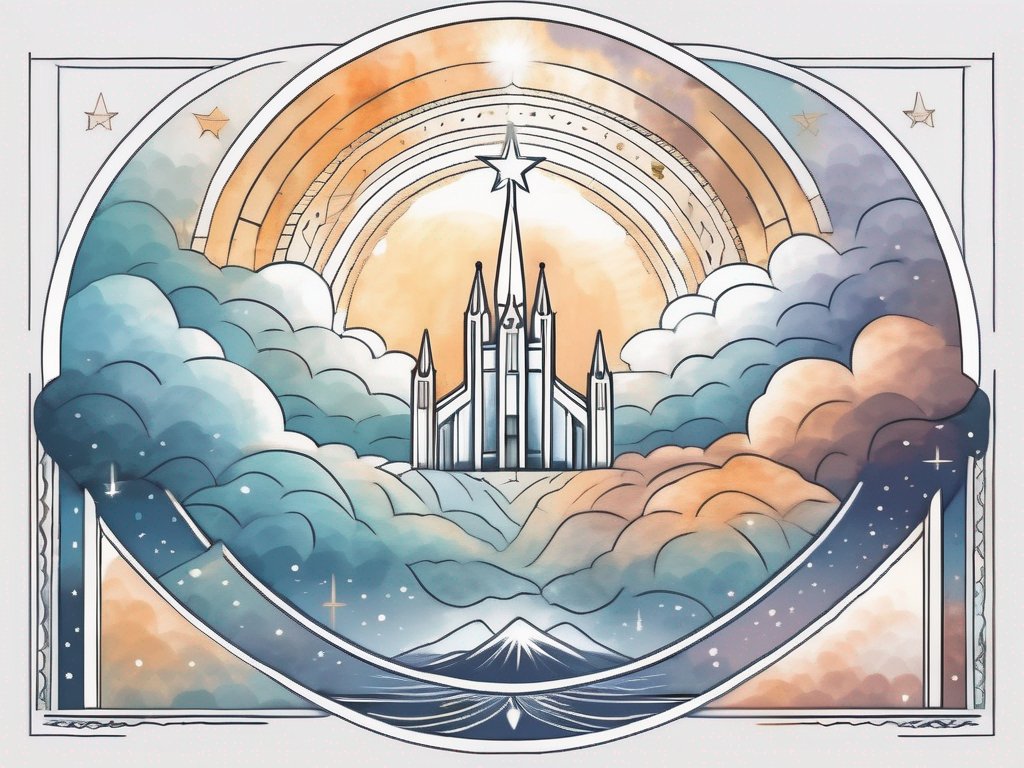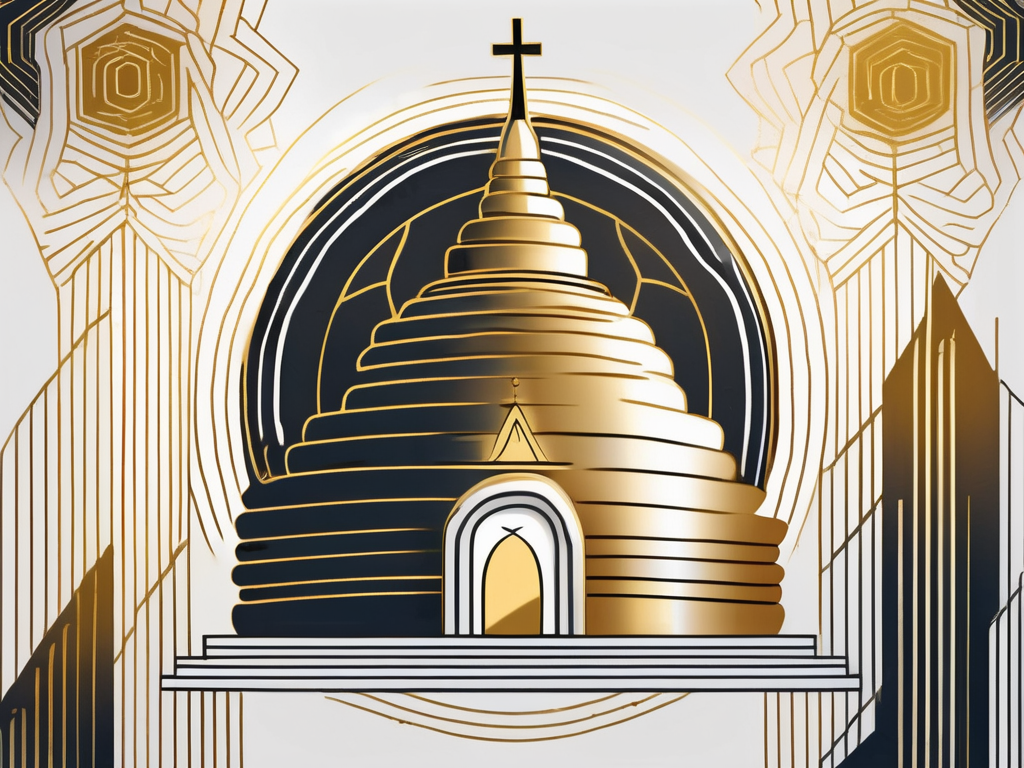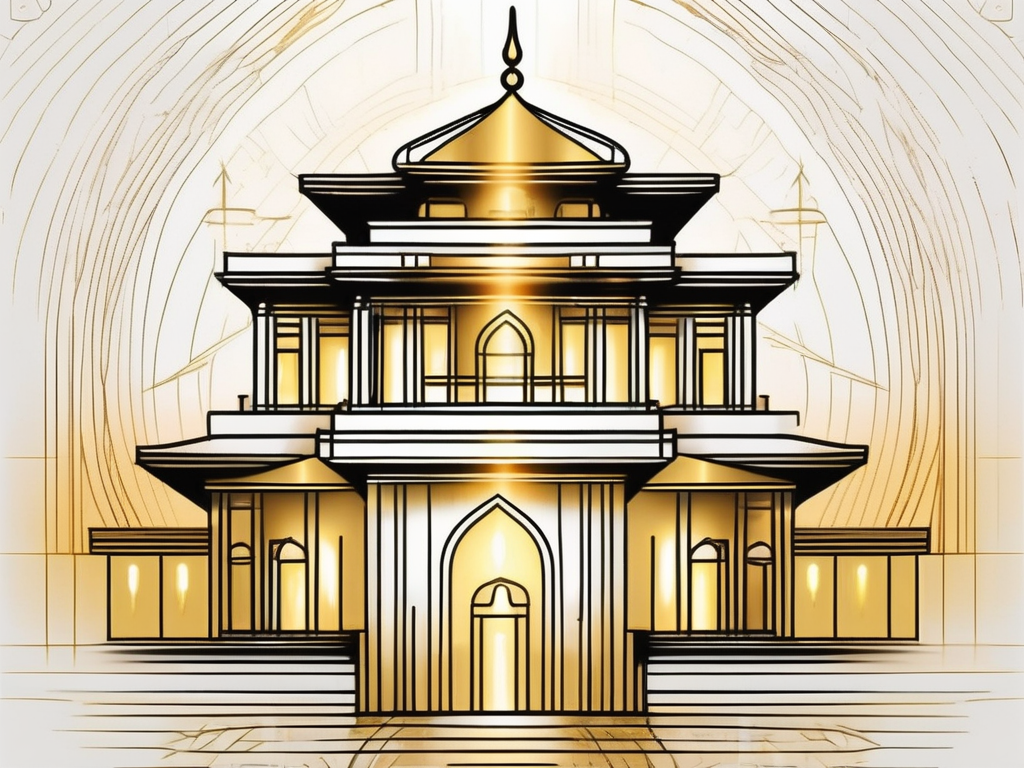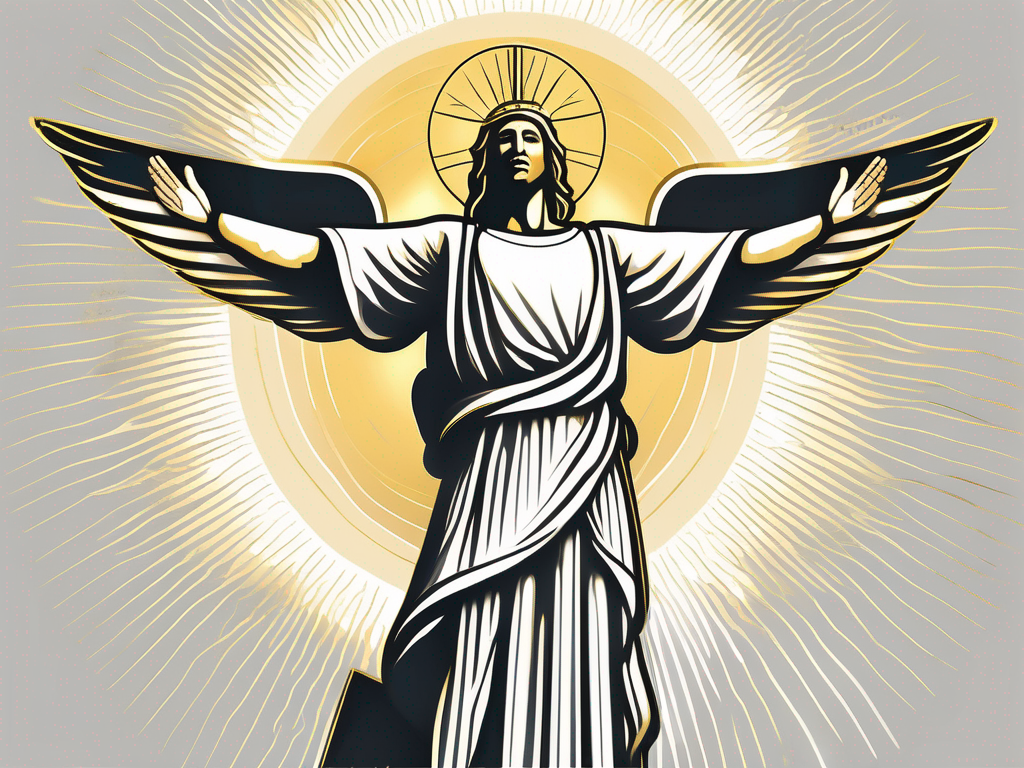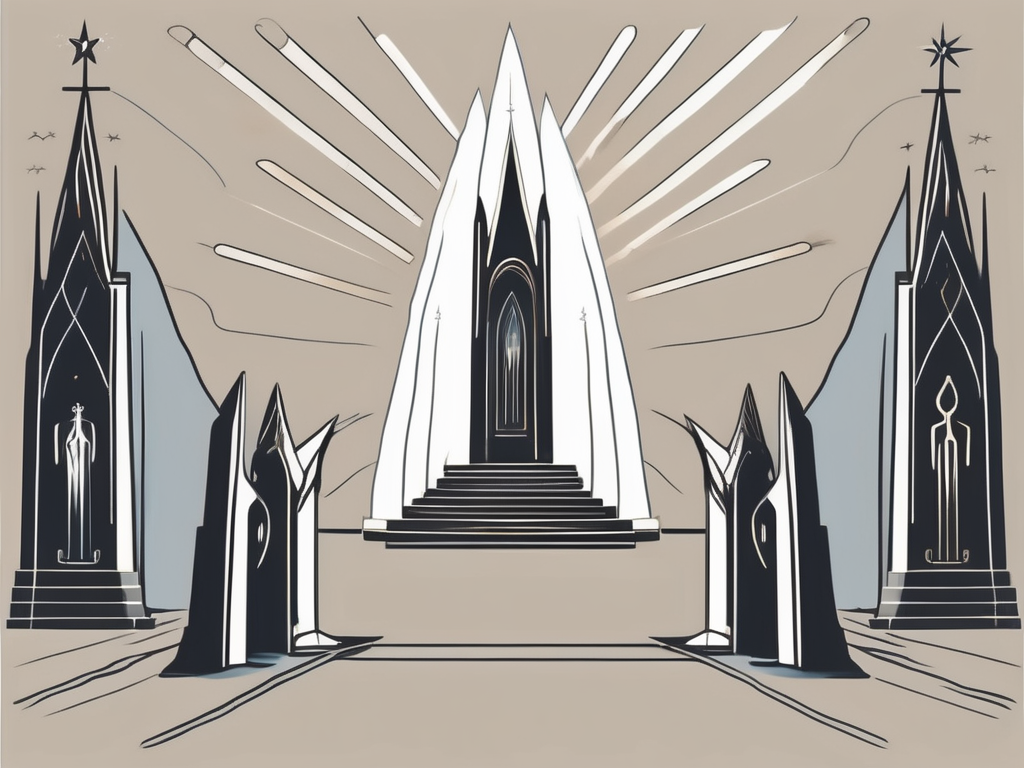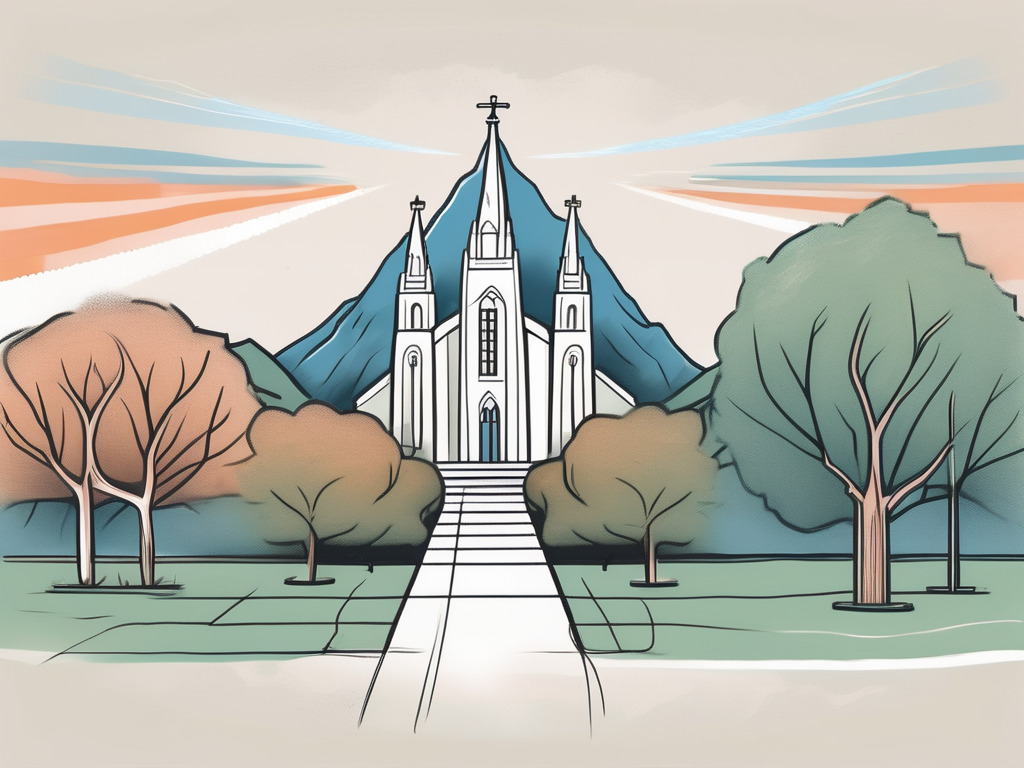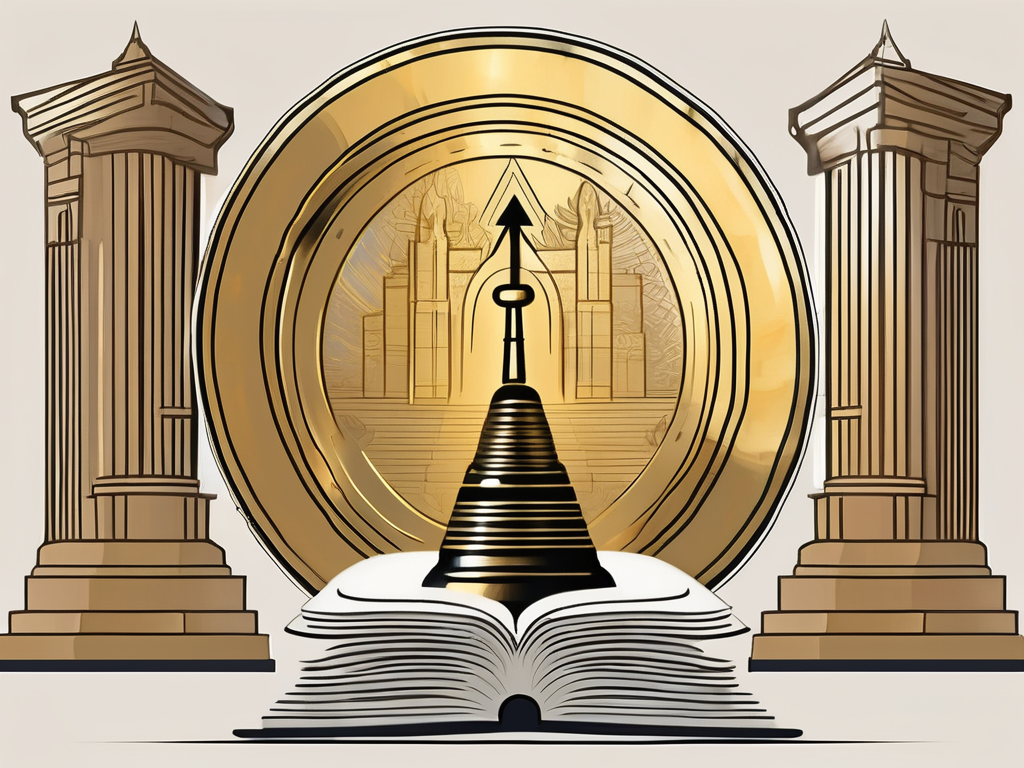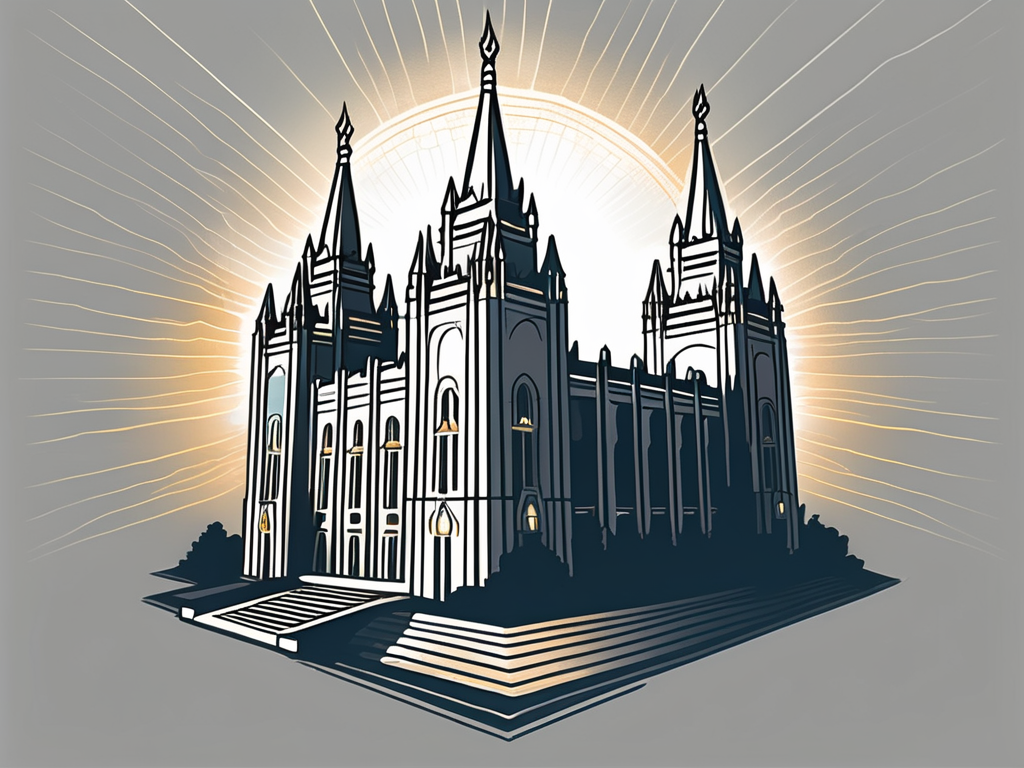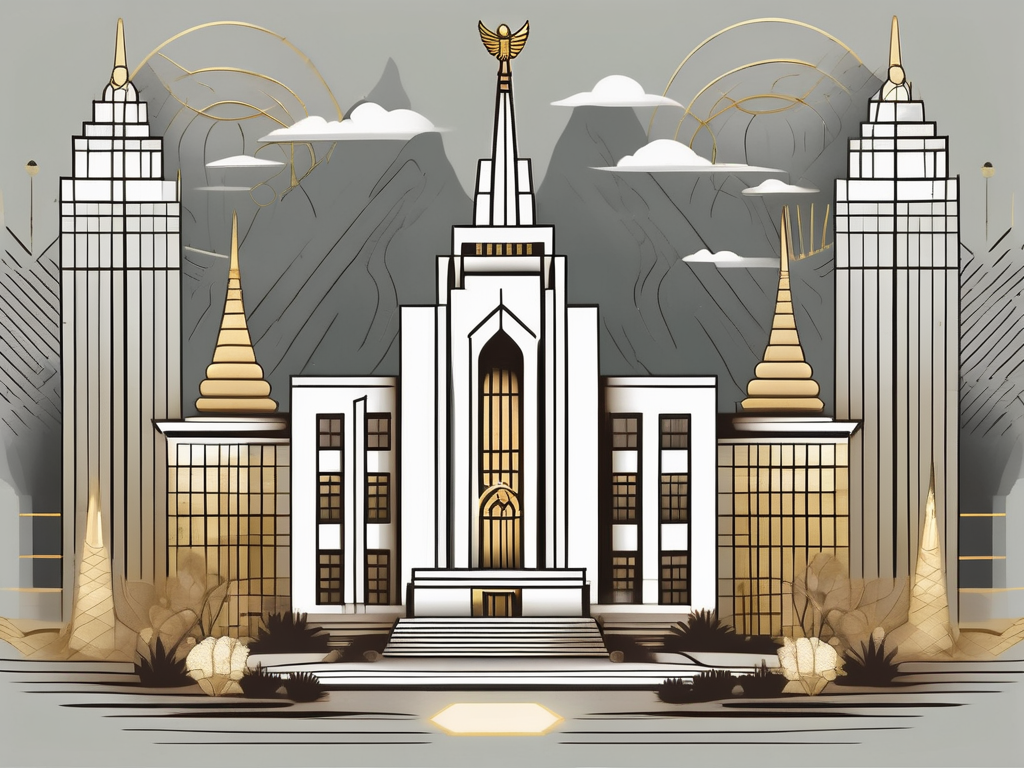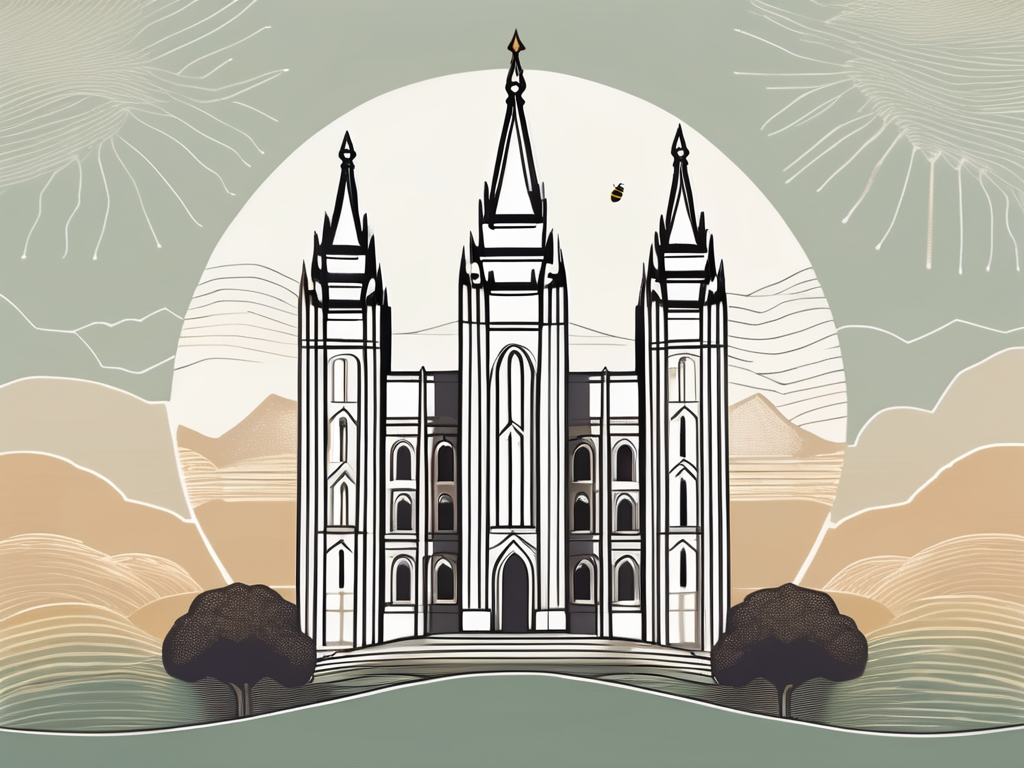Mormons, also known as members of The Church of Jesus Christ of Latter-day Saints, have unique beliefs when it comes to the concept of heaven and the afterlife. Understanding these beliefs can provide insight into their religious teachings and practices. In this article, we will explore the Mormon concept of afterlife, the plan of salvation, the different degrees of glory, and the controversial topics surrounding Mormon beliefs about heaven.
Understanding the Mormon Concept of Afterlife
Mormons believe in life after death and view it as a continuation of our earthly existence. This belief is rooted in their understanding of the plan of salvation, which encompasses the purpose of life, the role of Jesus Christ, and the potential for eternal progression. The Mormon concept of the afterlife provides a framework for individuals to understand their purpose and destiny beyond mortality.
According to Mormon doctrine, after death, individuals will be resurrected and assigned to one of three degrees of glory: the Celestial Kingdom, the Terrestrial Kingdom, or the Telestial Kingdom. This belief is based on their interpretation of scripture and the teachings of their prophets. The concept of different degrees of glory allows for a nuanced understanding of the diversity of human experiences and the potential for growth and progression in the eternities.
The Three Degrees of Glory
In accordance with their interpretation of scripture, Mormons believe that God has prepared different degrees of glory to accommodate individuals based on their faithfulness and works during mortal life. The Celestial Kingdom is the highest degree where individuals can dwell in God’s presence and live with their families in eternal happiness. It is a place of ultimate joy and exaltation, where individuals can continue to learn and progress throughout eternity.
The Terrestrial Kingdom is the middle degree, reserved for those who lived good lives but did not accept all aspects of the Mormon gospel. It is a place of peace and beauty, where individuals will still experience the blessings of God’s love and mercy, but not the fullness of His glory.
The Telestial Kingdom, the lowest degree, is for those who did not accept the gospel and lived in varying degrees of wickedness. It is a place of lesser glory, where individuals will experience the consequences of their choices but still have the opportunity to receive God’s mercy and forgiveness.
These three degrees of glory provide a framework for understanding the eternal progression and the potential for individuals to continue learning and growing in the eternities.
The Role of Jesus Christ in Salvation
Mormons believe that Jesus Christ is the central figure in their plan of salvation. They see Him as the Savior and Redeemer of all mankind, who made it possible for individuals to overcome sin and death through His Atonement. The Atonement of Jesus Christ is the central event in human history, providing the means for individuals to be resurrected and receive forgiveness of their sins.
Mormons strive to follow the teachings of Jesus Christ, seeking forgiveness through His Atonement and relying on His grace. They believe that through faith in Jesus Christ, repentance, baptism, receiving the gift of the Holy Ghost, and enduring to the end, individuals can receive the blessings of exaltation in the Celestial Kingdom.
For Mormons, the concept of the afterlife is not just a distant hope, but a present reality that shapes their daily lives. It provides them with a sense of purpose, direction, and hope for the future. The belief in the afterlife motivates Mormons to live virtuous lives, seek personal growth, and strive to develop Christlike attributes.
Overall, the Mormon concept of the afterlife is a rich and complex belief system that offers individuals a framework to understand their eternal potential and the role of Jesus Christ in their journey towards exaltation. It provides comfort, guidance, and a sense of purpose as Mormons navigate the challenges and joys of mortal life, with an eye towards the eternal blessings that await them in the afterlife.
The Plan of Salvation in Mormonism
Central to Mormon beliefs about heaven is the Plan of Salvation. This plan encompasses the journey of each individual from pre-mortal life, through mortality, and into the afterlife.
Pre-Mortal Life
Mormons believe that before coming to earth, individuals lived as spirit children of God. They view this pre-mortal existence as a time of learning and preparation for mortal life. Mormons believe that during this time, each person developed individual identities and made choices that would influence their mortal experiences.
In this pre-mortal life, Mormons believe that individuals had the opportunity to learn from heavenly beings and receive instruction from God Himself. They believe that this period of existence was filled with love, joy, and a sense of purpose as they eagerly anticipated their journey to earth.
During this time, Mormons believe that they were taught about the importance of agency and the ability to choose for themselves. They were given the freedom to make decisions and exercise their own will, understanding that these choices would have consequences in their mortal lives.
Mormons also believe that in this pre-mortal life, they had the opportunity to form relationships with other individuals who would become their family and friends on earth. They believe that these relationships were not random, but rather carefully planned and orchestrated by a loving Heavenly Father.
Mortal Life and the Purpose of Earthly Existence
Mormons view mortal life as a temporary state necessary for individual growth and progression. They believe that the purpose of our earthly existence is to gain a physical body, learn important lessons, and make choices that align with God’s commandments. Mormons place a strong emphasis on free agency and personal responsibility.
During mortal life, Mormons believe that individuals are faced with various challenges and trials that are designed to help them develop and grow. They believe that these experiences provide opportunities for learning, character development, and spiritual refinement.
Mormons also believe that mortal life is a time for individuals to exercise their agency and make choices that will shape their eternal destiny. They believe that by following the teachings of Jesus Christ and living according to God’s commandments, individuals can find true happiness and fulfillment.
Furthermore, Mormons believe that family relationships are of utmost importance during mortal life. They believe in the eternal nature of families and strive to strengthen and preserve these relationships through love, service, and unity.
Post-Mortal Life and Judgment
After death, Mormons believe in a time called the Spirit World—a place where the spirits of those who have passed away await resurrection and judgment. Mormons believe in a loving and just God who will judge each person individually and equitably, taking into account their knowledge, opportunities, and choices. Final judgment occurs after resurrection, determining the degree of glory to which individuals will be assigned.
Mormons believe that the Spirit World is a place of peace and rest, where individuals continue to learn and progress. They believe that during this time, those who did not have the opportunity to learn about Jesus Christ and His gospel in mortality will have the chance to accept or reject it.
Mormons also believe in the concept of vicarious work for the dead, where living individuals can perform sacred ordinances on behalf of their deceased ancestors. They believe that through these ordinances, individuals in the Spirit World can choose to accept or reject the blessings of the gospel.
Ultimately, Mormons believe that through the Plan of Salvation, all individuals will have the opportunity to receive the blessings and exaltation offered by a loving Heavenly Father. They believe that this plan provides a framework for understanding the purpose of life, the importance of agency, and the eternal nature of families.
The Mormon Concept of Heaven
Within the Mormon belief system, heaven is not just a single place but encompasses the three degrees of glory, which can be seen as different heavenly realms. These realms offer varying levels of joy, peace, and rewards based on an individual’s faithfulness and adherence to God’s commandments.
The Celestial Kingdom
The Celestial Kingdom is the highest degree of glory that Mormons strive to attain. They believe that those who are exalted in the Celestial Kingdom will dwell in the presence of God and experience eternal joy with their families. This heavenly realm is described as a place of perfection, where individuals can continue to progress and learn throughout eternity. Mormons view this as the ultimate goal of their earthly existence and actively seek to live in accordance with God’s commandments to achieve this heavenly realm.
Within the Celestial Kingdom, there are further divisions or levels of glory. These divisions are based on an individual’s faithfulness and the ordinances they have received in this life. The highest level is reserved for those who have entered into the covenant of eternal marriage and have remained faithful to their spouse and the gospel. They believe that in this highest level, families can be sealed together for eternity, ensuring eternal happiness and unity.
The Terrestrial Kingdom
The Terrestrial Kingdom is considered the middle degree of glory. Mormons believe that individuals who obtain this level of glory will not dwell directly in God’s presence but will still experience joy and peace. This realm is reserved for those who lived honorable lives but did not accept the fulness of the gospel during their earthly existence. They may have been good people and made positive contributions to society but did not embrace the teachings of Mormonism fully.
In the Terrestrial Kingdom, individuals will still enjoy a measure of God’s glory and experience blessings, but they will not have the same level of exaltation as those in the Celestial Kingdom. It is believed that in this realm, individuals will have the opportunity to learn and progress, but their eternal progression will be limited compared to those in the highest degree of glory.
The Telestial Kingdom
The Telestial Kingdom is the lowest degree of glory described in Mormon teachings. Mormons believe that this realm is for those who rejected or did not accept the gospel of Jesus Christ during their earthly lives. It is a place of lesser glory and rewards, yet one where individuals can still experience joy and progression.
Within the Telestial Kingdom, individuals will not enjoy the same level of blessings and happiness as those in the higher degrees of glory. However, it is believed that even in this realm, individuals will have the opportunity to learn and grow. The Telestial Kingdom is seen as a place where individuals will ultimately receive a just and fair judgment based on their actions and choices in mortality.
It is important to note that Mormons believe in the possibility of repentance and progression even after death. They believe that individuals in the lower degrees of glory can still have the opportunity to accept the gospel and move towards higher degrees of glory through the mercy and grace of Jesus Christ.
The Role of Families in the Mormon Afterlife
Mormon beliefs place a strong emphasis on the importance of families and eternal relationships. They teach that families can be together forever through ordinances performed in Latter-day Saint temples.
Eternal Marriage and Families
Mormons believe that marriages performed within the temples can be sealed for time and all eternity. They believe that these sealed marriages allow families to continue their relationships beyond the grave, enabling them to progress together in the highest degree of glory, the Celestial Kingdom.
The Doctrine of Baptism for the Dead
One unique belief within Mormonism is the practice of performing baptisms for deceased individuals who did not have the opportunity to receive the ordinance during their earthly lives. Mormons believe that these baptisms offer the deceased the chance to accept or reject the ordinance in the afterlife, providing them with the opportunity to progress towards exaltation.
Controversies and Misconceptions about Mormon Beliefs on Heaven
Due to their unique beliefs and practices, Mormonism has often faced controversies and misconceptions surrounding their views on heaven.
Addressing the Concept of Exaltation
One controversy surrounding Mormon beliefs is the concept of exaltation, where individuals can potentially become gods themselves. Critics of Mormonism often misunderstand this belief, assuming that Mormons believe they will become gods equal to God the Father. In reality, Mormons believe that exaltation means becoming like God in perfection and maturity, while still recognizing God’s supreme position.
Clarifying the Idea of Godhood in the Afterlife
Another misconception is the view that Mormons worship multiple gods in the same way as traditional polytheistic religions. Mormons believe in the existence of many gods but worship only one—their Heavenly Father. They see the other gods as beings who have obtained exaltation through obedience to God’s laws and principles.
To conclude, Mormons hold unique beliefs about heaven and the afterlife. They believe in the three degrees of glory, place Jesus Christ at the center of their salvation, and see families as an integral part of the eternal plan. Understanding these beliefs can provide a deeper insight into the practices and teachings of The Church of Jesus Christ of Latter-day Saints.
